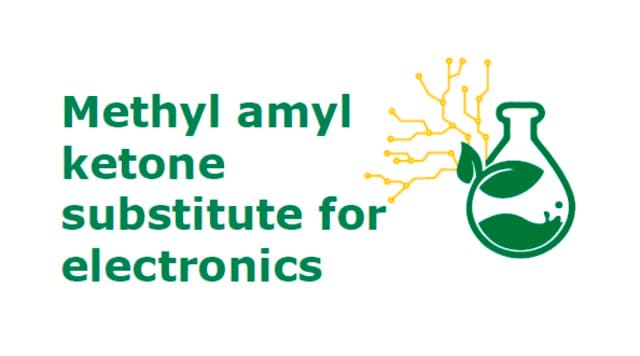W254430
2-Heptanone
natural, 98%, FG
Synonym(s):
Methyl pentyl ketone
About This Item
Recommended Products
grade
FG
Fragrance grade
Halal
Kosher
natural
Quality Level
Agency
follows IFRA guidelines
meets purity specifications of JECFA
reg. compliance
EU Regulation 1223/2009
EU Regulation 1334/2008 & 178/2002
FDA 21 CFR 117
vapor density
3.94 (vs air)
vapor pressure
2.14 mmHg ( 20 °C)
Assay
98%
form
liquid
autoignition temp.
739 °F
expl. lim.
1.11 %, 65 °F
7.9 %, 121 °F
refractive index
n20/D 1.408 (lit.)
bp
149-150 °C (lit.)
mp
−35 °C (lit.)
density
0.82 g/mL at 25 °C (lit.)
application(s)
flavors and fragrances
Documentation
see Safety & Documentation for available documents
food allergen
no known allergens
fragrance allergen
no known allergens
Organoleptic
creamy; waxy; cheesy; fruity
SMILES string
CCCCCC(C)=O
InChI
1S/C7H14O/c1-3-4-5-6-7(2)8/h3-6H2,1-2H3
InChI key
CATSNJVOTSVZJV-UHFFFAOYSA-N
Looking for similar products? Visit Product Comparison Guide
Related Categories
Signal Word
Warning
Hazard Statements
Precautionary Statements
Hazard Classifications
Acute Tox. 4 Inhalation - Acute Tox. 4 Oral - Flam. Liq. 3 - STOT SE 3
Target Organs
Central nervous system
Storage Class Code
3 - Flammable liquids
WGK
WGK 1
Flash Point(F)
105.8 °F - closed cup
Flash Point(C)
41 °C - closed cup
Certificates of Analysis (COA)
Search for Certificates of Analysis (COA) by entering the products Lot/Batch Number. Lot and Batch Numbers can be found on a product’s label following the words ‘Lot’ or ‘Batch’.
Already Own This Product?
Find documentation for the products that you have recently purchased in the Document Library.
Our team of scientists has experience in all areas of research including Life Science, Material Science, Chemical Synthesis, Chromatography, Analytical and many others.
Contact Technical Service







